The nickname he could easily have forgiven, but the allusion to the divine source of all his melodious joy would have irritated even him. Let us hope he never knew the insult.
'Only think, old Billy Gazy,' said Spriggs, who rejoiced in greater youth than his brethren, but having fallen into a fire when drunk, had had one eye burnt out, one cheek burnt through, and one arm nearly burnt off, and who, therefore, in regard to personal appearance, was not the most prepossessing of men, 'a hundred a year, and all to spend; only think, old Billy Gazy'; and he gave a hideous grin that showed off his misfortunes to their full extent.
Old Billy Gazy was not alive to much enthusiasm. Even these golden prospects did not arouse him to do more than rub his poor old bleared eyes with the cuff of his bedesman's gown, and gently mutter; 'he didn't know, not he; he didn't know.'
'But you'd know, Jonathan,' continued Spriggs, turning to the other friend of Skulpit's, who was sitting on a stool by the table, gazing vacantly at the petition. Jonathan Crumple was a meek, mild man, who had known better days; his means had been wasted by bad children, who had made his life wretched till he had been received into the hospital, of which he had not long been a member. Since that day he had known neither sorrow nor trouble, and this attempt to fill him with new hopes was, indeed, a cruelty.
'A hundred a year's a nice thing, for sartain, neighbour Spriggs,' said he. 'I once had nigh to that myself, but it didn't do me no good.' And he gave a low sigh, as he thought of the children of his own loins who had robbed him.
'And shall have again, Joe,' said Handy; 'and will have someone to keep it right and tight for you this time.'
Crumple sighed again--he had learned the impotency of worldly wealth, and would have been satisfied, if left untempted, to have remained happy with one and sixpence a day.
'Come, Skulpit,' repeated Handy, getting impatient, 'you're not going to go along with old Bunce in helping that parson to rob us all. Take the pen, man, and right yourself. Well,' he added, seeing that Skulpit still doubted, 'to see a man as is afraid to stand by hisself is, to my thinking, the meanest thing as is.'
'Sink them all for parsons, says I,' growled Moody;
'hungry beggars, as never thinks their bellies full till they have robbed all and everything!'
'Who's to harm you, man?' argued Spriggs. 'Let them look never so black at you, they can't get you put out when you're once in--no, not old Catgut, with Calves to help him!'
I am sorry to say the archdeacon himself was designated by this scurrilous allusion to his nether person.
'A hundred a year to win, and nothing to lose,' continued Handy. 'My eyes! Well, how a man's to doubt about sich a bit of cheese as that passes me--but some men is timorous-- some men is born with no pluck in them--some men is cowed at the very first sight of a gentleman's coat and waistcoat.'
Oh, Mr Harding, if you had but taken the archdeacon's advice in that disputed case, when Joe Mutters was this ungrateful demagogue's rival candidate!
'Afraid of a parson,' growled Moody, with a look of ineffable scorn. 'I tell ye what I'd be afraid of--I'd be afraid of not getting nothing from 'em but just what I could take by might and right--that's the most I'd be afraid on of any parson of 'em all.'
'But,' said Skulpit, apologetically, 'Mr Harding's not so bad--he did give us twopence a day, didn't he now?'
'Twopence a day!' exclaimed Spriggs with scorn, opening awfully the red cavern of his lost eye.
'Twopence a day!' muttered Moody with a curse; 'sink his twopence!'
'Twopence a day!' exclaimed Handy; 'and I'm to go, hat in hand, and thank a chap for twopence a day, when he owes me a hundred pounds a year; no, thank ye; that may do for you, but it won't for me. Come, I say, Skulpit, are you a going to put your mark to this here paper, or are you not?'
Skulpit looked round in wretched indecision to his two friends. 'What d'ye think, Bill Gazy?' said he.
But Bill Gazy couldn't think. He made a noise like the bleating of an old sheep, which was intended to express the agony of his doubt, and again muttered that 'he didn't know.'
'Take hold, you old cripple,' said Handy, thrusting the pen into poor Billy's hand: 'there, so--ugh! you old fool, you've been and smeared it all--there--that'll do for you--that's as good as the best name as ever was written': and a big blotch of ink was presumed to represent Billy Gazy's acquiescence.
'Now, Jonathan,' said Handy, turning to Crumple.
'A hundred a year's a nice thing, for sartain,' again argued Crumple. 'Well, neighbour Skulpit, how's it to be?'
'Oh, please yourself,' said Skulpit: 'please yourself, and you'll please me.'














